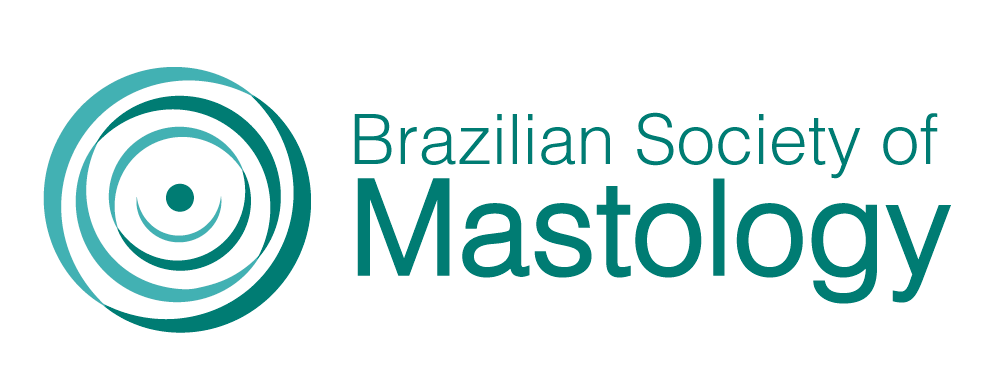Capecitabine-related death in triple negative breast cancer: a case report
DOI:
https://doi.org/10.29289/2594539420230043Palavras-chave:
breast neoplasms, triple negative breast neoplasms, capecitabine, drug toxicityResumo
Triple-negative breast cancer (TNBC) is an immunohistochemical subtype of breast neoplasia characterized by the absence of hormonal receptor and HER2 expression. Capecitabine has been increasingly used in the treatment of TNBC patients who did not achieve a pathological complete response (pCR) after neoadjuvant therapy, showing favorable survival outcomes. Adverse effects related to capecitabine use are common, including gastrointestinal, hematologic, and dermatologic toxicity. However, the drug is generally well tolerated, and fatal outcomes related to treatment are infrequent. Due to its atypical nature, this study reports a death associated with therapy. In the case presented, the patient developed pancytopenia and febrile neutropenia (FN) 18 days after starting chemotherapy, progressing to alveolar, gastrointestinal, vaginal, and urethral hemorrhage, followed by hemodynamic instability, cardiopulmonary arrest, and death. Mortality occurring so early after capecitabine initiation may be linked to genetic alterations in certain individuals, such as dihydropyridine (DPD) deficiency. Genetic testing to identify DPD gene defects could allow for chemotherapy dose adjustments and reduce toxicity prevalence; however, such testing is not routinely performed. Further studies are needed to substantiate and assess the degree of benefit of this investigation before capecitabine chemotherapy, as well as the appropriate course of action based on the results. In these patients, FN prophylaxis with recombinant granulocyte colony-stimulating factors (G-CSFs) may also be considered, although it is primarily recommended for chemotherapeutic agents with a higher risk of myelotoxicity. Additional research is necessary regarding the actual application of capecitabine in TNBC cases to evaluate effectiveness, tolerability, and improve patient management.
Downloads
Referências
5. Li Y, Zhou Y, Mao F, Lin Y, Zhang X, Shen S, et al. Adjuvant
addition of capecitabine to early-stage triple-negative breast
cancer patients receiving standard chemotherapy: a metaanalysis. Breast Cancer Res Treat. 2019;179(3):533-42. https://
doi.org/10.1007/s10549-019-05513-4
6. Masuda N, Lee SJ, Ohtani S, Im YH, Lee ES, Yokota I, et al.
Adjuvant capecitabine for breast cancer after preoperative
chemotherapy. N Engl J Med. 2017;376(22):2147-59. https://doi.
org/10.1056/NEJMoa1612645
7. Wang X, Wang SS, Huang H, Cai L, Zhao L, Peng RJ, et al. Effect
of capecitabine maintenance therapy using lower dosage
and higher frequency vs observation on disease-free survival
among patients with early-stage triple-negative breast cancer
who had received standard treatment: the SYSUCC-001
randomized clinical trial. JAMA. 2021;325(1):50-8. https://doi.
org/10.1001/jama.2020.23370
8. Li Z, Zheng J, Ji Z, Chen L, Wu J, Zou J, et al. Addition of
capecitabine to adjuvant chemotherapy may be the most
effective strategy for patients with early-stage triple-negative
breast cancer: a network meta-analysis of 9 randomized
controlled trials. Front Endocrinol (Lausanne). 2022;13:939048.
https://doi.org/10.3389/fendo.2022.939048
9. Nishijima TF, Suzuki M, Muss HB. A comparison of toxicity profiles
between the lower and standard dose capecitabine in breast cancer:
a systematic review and meta-analysis. Breast Cancer Res Treat.
2016;156(2):227-36. https://doi.org/10.1007/s10549-016-3756-5
10. Parente P, Maiorano BA, Ciardiello D, Cocomazzi F, Carparelli
S, Guerra M, et al. Clinic, endoscopic and histological features
in patients treated with ICI developing GI toxicity: some
news and reappraisal from a mono-institutional experience.
Diagnostics (Basel). 2022;12(3):685. https://doi.org/10.3390/
diagnostics12030685
11. Xun X, Cao Q, Hong P, Rai S, Zhou Y, Liu R, et al. Efficacy and safety of
capecitabine for triple-negative breast cancer: a meta-analysis. Front
Oncol. 2022;12:899423. https://doi.org/10.3389/fonc.2022.899423
12. Beyerlin K, Jimenez R, Zangardi M, Fell GG, Edmonds C, Johnson A,
et al. The adjuvant use of capecitabine for residual disease following
pre-operative chemotherapy for breast cancer: challenges
applying CREATE-X to a US population. J Oncol Pharm Pract.
2020;27(8):1883-90. https://doi.org/10.1177/1078155220971751
13. Di Lisa FS, Krasniqi E, Pizzuti L, Barba M, Cannita K, De Giorgi
U, et al. Adjuvant capecitabine in triple negative breast cancer
patients with residual disease after neoadjuvant treatment:
real-world evidence from CaRe, a multicentric, observational
study. Front Oncol. 2023;13:1152123. https://doi.org/10.3389/
fonc.2023.1152123
14. Saif MW, Syrigos K, Mehra R, Mattison LK, Diasio RB.
Dihydropyrimidine dehydrogenase deficiency (DPD) in
GI malignancies: experience of 4-years. Pak J Med Sci.
2007;23(6):832-9. PMID: 18846242.
15. Henricks LM, Lunenburg CATC, Cats A, Mathijssen RHJ,
Guchelaar HJ, Schellens JHM. DPYD genotype-guided dose
individualisation of fluoropyrimidine therapy: who and
how? – Authors’ reply. Lancet Oncol. 2019;20(2):e67. https://
doi.org/10.1016/S1470-2045(19)30010-5
16. Fust K, Li X, Maschio M, Villa G, Parthan A, Barron R,
et al. Cost-effectiveness analysis of prophylaxis treatment
strategies to reduce the incidence of febrile neutropenia
in patients with early-stage breast cancer or non-hodgkin
lymphoma. Pharmacoeconomics. 2017;35(4):425-38. https://
doi.org/10.1007/s40273-016-0474-0
17. Barbosa NN, Seben BT, Sarkis CM, Anacleto JO, Hohl LT,
Silva PJC, et al. Neutropenia febril. In: Carvalho Junior FF,
org. Alergia e imunologia: abordagens clínicas e prevenções.
Guarujá: Científica Digital; 2021. p. 239-50. https://doi.
org/10.37885/210404158
18. Limberger LM, Bonfim Filho JA. Neutropenia febril em
pacientes oncológicos: uma revisão de literatura. Res Soc
Dev. 2023;12(2):e27812240347. https://doi.org/10.33448/rsdv12i2.40347
19. Lisboa LCC, Pimentel JP, Lacerda BS, Almeida RN, Oliveira
CRV, Reis BCC. O uso do Filgrastim como profilaxia para a
neutropenia febril induzida pela quimioterapia: uma revisão de
literatura. REAMed. 2022;19:e10944. https://doi.org/10.25248/
REAMed.e10944.2022
20. Saif MW, Hakim N, Chi J, Rehman H, Goyal SP, Olazagasti
C, et al. First analysis of same-day pegfilgrastim use with
concurrent capecitabine-based regimens in patients with
gastrointestinal malignancies. Cancer
Publicado
Como Citar
Edição
Seção
Licença
Copyright (c) 2025 Gerson Mauro Miranda Veloso Júnior, Andreza Cristina Souza do Espírito Santo, Djenanne Simonsen Augusto de Carvalho Caetano, Juliana da Costa Souza

Este trabalho está licenciado sob uma licença Creative Commons Attribution 4.0 International License.







